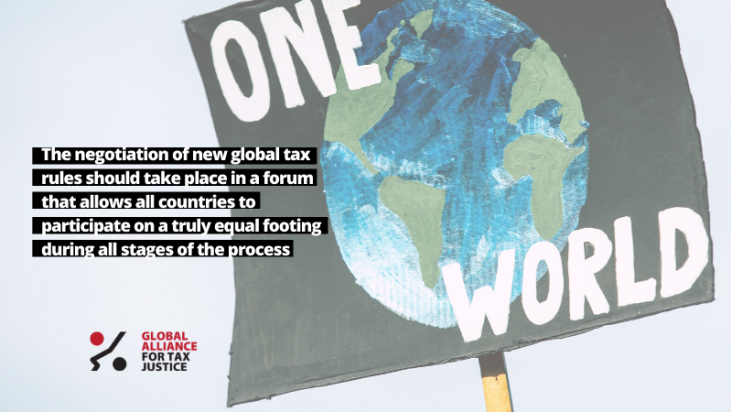Our Global Tax Rules Working Group, in which the Global Alliance for Tax Justice collaborates with a range of civil society organisations from around the world to struggle for an equitable and inclusive reform of international tax rules, has made the attached submission in response to the public consultation on the reports on the Pillar One and Pillar Two of the OECD Blueprint.
The submission highlights our concerns regarding the legitimacy of the OECD led process, the bias of the proposal in favour of “residence” (rich) countries, the disregard of developing countries’ proposals and the purposeful complexity of the OECD proposals that makes them well-nigh impossible to implement and administer.
“Large-scale corporate tax avoidance and injustice are costing governments around the world hundreds of billions of dollars in lost tax income every year and, not least in light of the global Covid-19 crisis, this problem is now more urgent than ever. But unfortunately, we, the undersigned organisations, find that the Inclusive Framework process has failed to deliver solutions to address the fundamental flaws in the international corporate tax system. Not only are the approaches outlined in the Blueprints for Pillar One and Pillar Two far too limited, and would largely maintain the existing system that allows large multinational corporations to avoid paying taxes to all governments, but they will create a system that is highly complex and has clear biases towards the interests of the home countries of multinational corporations (residence countries) at the expense of source countries where corporations do business but are not headquartered. Keeping in mind that residence countries are primarily OECD countries, whereas developing countries, and especially poorer developing countries, are normally source countries, this bias is of great concern”, highlighted the organisations.
“We believe that the negotiation of new global tax rules should take place in a forum that allows all countries to participate on a truly equal footing during all stages of the process, serviced by a neutral secretariat. The United Nations is the only truly universal body, and thus we believe that this is the appropriate forum for such a negotiation. While the Inclusive Framework has allowed countries to participate in ongoing discussions, we note that not all countries had an equal say when the mandate for the negotiations was developed.”
Click here to read the document.
